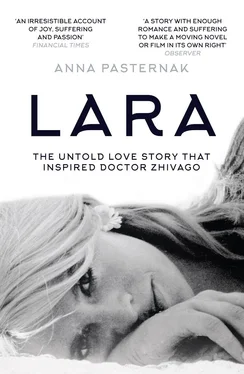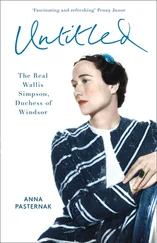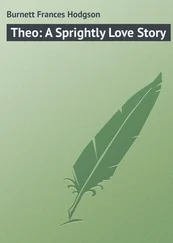In the last century few literary works created such a furore as Doctor Zhivago . It was not until 1957, over twenty years after Pasternak first confided in Josephine, that the book was published, initially in Italy. Despite being an instant, international bestseller, and even though Pasternak was then seen as Russia’s ‘greatest living writer’, it was over thirty years later, in 1988, that his book, regarded as anti-revolutionary and unpatriotic, was legitimately published in his adored ‘Mother Russia’. The cultural critic Dmitry Likhachev, who was considered the world’s foremost expert in Old Russian language and literature in the late twentieth century, said that Doctor Zhivago was not really a traditional novel but was rather ‘a kind of autobiography’ of the poet’s inner life. The hero, he believed, was not an active agent but a window on the Russian Revolution.
In 1965 David Lean made film history with his adaptation of Pasternak’s novel, in which Julie Christie was cast as the heroine, Lara, and Omar Sharif as the hero, Yury Zhivago. The film won five Academy Awards and was nominated for five more. Lean’s Hollywood classic has left millions of viewers with images as magic and endurable as Pasternak’s prose. It is the eighth highest-grossing film in American film history. Robert Bolt, who won an Academy Award for the screenplay, said of adapting Pasternak’s work: ‘I’ve never done anything so difficult. It’s like straightening cobwebs.’ Omar Sharif said of it: ‘ Doctor Zhivago encompasses but does not overwhelm the human spirit. That is Boris Pasternak’s gift.’ Of the enduring quality of the story, he concluded: ‘He proves that true love is timeless. Doctor Zhivago was and always will be a classic for all generations.’
There is a Russian proverb: ‘You cannot know Russia through your head. You can only understand her through your heart.’ When I visited Russia for the first time, walking around Moscow was like being haunted, as I had the sense not of being a tourist but of coming home. It was not that Moscow was familiar to me but it did not feel foreign either. I marched through the snow one wintry February night, up the wide Tverskaya Street, to dinner at the Café Pushkin restaurant, acutely conscious that Boris and Olga had used the same route many times during their courtship, over sixty years earlier, treading the very same pavements.
Sitting amid the flickering candlelight of the Café Pushkin, which is styled to resemble a Russian aristocrat’s home of the 1820s – with its galleried library, book-lined walls, elaborate cornices, frescoed ceilings and distinct grandeur – I felt the hand of history gently resting on me. The restaurant is close to the old offices of Novy Mir , Olga’s former workplace on Pushkin Square. I imagined Olga and Boris walking past, their heads bowed low and close against the snow, wrapped in heavy coats, their hearts full of desire.
Five years later, on another visit to Moscow, I went to the Pushkin statue, erected in 1898, where Boris and Olga frequently rendezvoused during the early stages of their relationship. It was here that Boris first confessed the depth of his feelings to Olga. The vast statue of Pushkin was moved in 1950 from one side of Pushkin Square to the other, so they would have started their courtship on the west side of the square and moved to the east side in 1950 where I stood, looking up at the giant bronze folds of Pushkin’s majestic cape tumbling down his back. My Moscow guide, Marina, a fan of Putin and the current regime, looked at me standing under Pushkin’s statue, envisaging Boris at that very spot, and said: ‘Boris Pasternak is an inhabitant of heaven. He is an idol for so many of us, even those who are not interested in poetry.’
This reverential view echoed my meeting with Olga’s daughter, Irina Emelianova, in Paris a few months earlier. ‘I thank God for the chance to have met this great poet,’ she told me. ‘We fell in love with the poet before the man. I always loved poetry and my mother loved his poetry, just as generations of Russians have. You cannot imagine how remarkable it was to have Boris Leonidovich [his Russian patronymic name †] not just in the pages of our poetry but in our lives.’
Irina was immortalised by Pasternak as Lara’s daughter, Katenka, in Doctor Zhivago . Growing up, Irina became incredibly close to Boris. He loved her as the daughter he never had and was more of a father figure to her than any other man in her life. Irina got up from the table we were sitting at and retrieved a book from her well-stocked shelves. It was a translation of Goethe’s Faust which Boris had given her, and on the title page was a dedication in Boris’s bold, looping handwriting in black ink, ‘like cranes soaring over the page’ as Olga once described it. Inside, Boris had written in Russian to the then seventeen-year-old Irina: ‘Irochka, this is your copy. I trust you and I believe in your future. Be bold in your soul and mind, in your dreams and purposes. Put your faith in nature, in the spirit of your destiny, in events of significance – and only in such few people as have been tested a thousand times, and are worthy of your confidence.’
Irina proudly read the final inscription to me. Boris had written: ‘Almost like a father, Your BP. November 3, 1955, Peredelkino.’ As she ran her hand affectionately across the page, she said sadly: ‘It’s a shame that the ink will fade.’
It was a timeless moment, as we both stared at the page, considering perhaps that everything precious in life eventually ebbs away. Irina closed the book, straightened her shoulders, and said: ‘You cannot imagine how knowing Boris Pasternak altered our lives. I would go and listen to his poetry recitals and I was the envy of my friends at school and my English professor and the teachers. “You know Boris Leonidovich?” they would ask me in awe. “Can you get the latest poem from him?” I would ask his typist if we could just have one line of his verse and sometimes he would distribute a poem for me to hand out. That gave me incredible prestige at school and in a way his glory rubbed off on me.’
The Russian people’s reverence for Pasternak, which remains to this day, is not just because of the enduring power of his writing, but because he never wavered in his loyalty to Russia. His great love was for his Motherland; in the end, that was stronger than everything. He renounced the Nobel Prize for Literature when the Soviet authorities threatened that if he left his country, he would not be allowed to return. And he never became an émigré, refusing to follow his parents to Germany, then England, after the 1917 Revolution.
When I went to Peredelkino, to the writer’s colony, a fifty-minute drive from central Moscow, where Boris spent nearly two decades writing Doctor Zhivago , I felt a profound sadness. As I sat at Boris’s desk in his study on the upper floor of his dacha, I traced the faint ring marks his coffee cups had left on the wood over fifty years earlier. Icicles hung outside the window, reminiscent of David Lean’s film: I was reminded of Varykino, the abandoned estate in the novel, where Yury spends his last days with Lara, dazzling in the sun and snow; the lacework of hoar frost on the frozen window panes; the crystalline magic conjured on screen; Julie Christie, embodying his Lara, effortlessly beautiful beneath her fur hat. I thought of my great-uncle Boris looking out of the window, across the garden he adored, past the pine trees to the Church of Transfiguration. In the distance lies Peredelkino cemetery, where he is buried. Earlier that day, my father, Boris’s nephew, and I had trudged through deep snowdrifts in the cemetery to visit his grave, where I was touched to find a bouquet of frozen long-stemmed pink roses carefully placed against his headstone. They must have been left there by a fan. I was struck that no words of Boris’s adorn his grave. Just his face etched into the stone. Powerful in its simplicity, nothing more needs to be said.
Читать дальше












